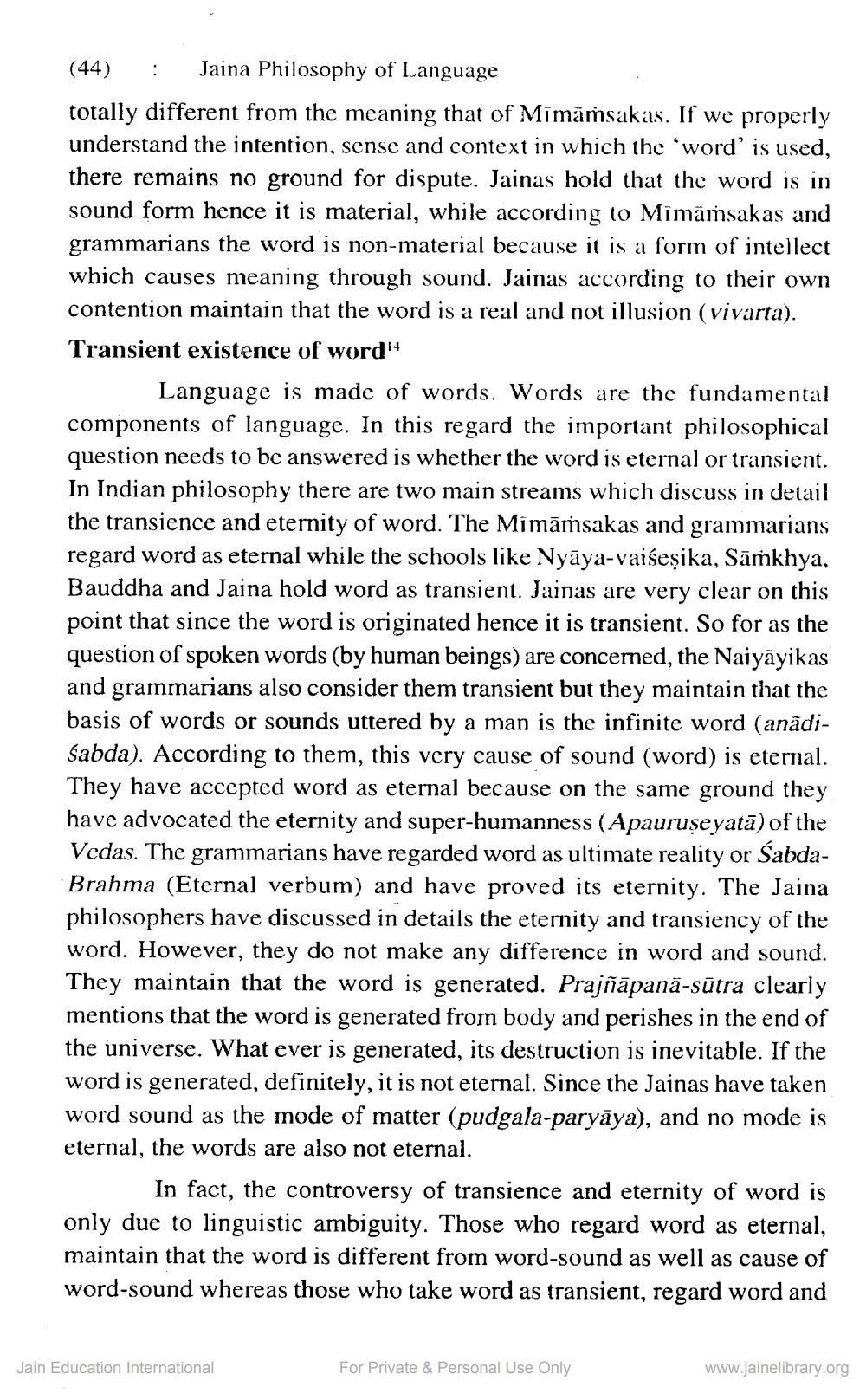________________
(44) : Jaina Philosophy of Language totally different from the meaning that of Mīmāmsakas. If we properly understand the intention, sense and context in which the 'word' is used, there remains no ground for dispute. Jainas hold that the word is in sound form hence it is material, while according to Mimāṁsakas and grammarians the word is non-material because it is a form of intellect which causes meaning through sound. Jainas according to their own contention maintain that the word is a real and not illusion (vivarta). Transient existence of word"
Language is made of words. Words are the fundamental components of language. In this regard the important philosophical question needs to be answered is whether the word is eternal or transient. In Indian philosophy there are two main streams which discuss in detail the transience and eternity of word. The Mimāṁsakas and grammarians regard word as eternal while the schools like Nyāya-vaiseșika, Sāṁkhya, Bauddha and Jaina hold word as transient. Jainas are very clear on this point that since the word is originated hence it is transient. So for as the question of spoken words (by human beings) are concerned, the Naiyāyikas and grammarians also consider them transient but they maintain that the basis of words or sounds uttered by a man is the infinite word (anādiśabda). According to them, this very cause of sound (word) is eternal. They have accepted word as eternal because on the same ground they have advocated the eternity and super-humanness (Apauruşeyatā) of the Vedas. The grammarians have regarded word as ultimate reality or SabdaBrahma (Eternal verbum) and have proved its eternity. The Jaina philosophers have discussed in details the eternity and transiency of the word. However, they do not make any difference in word and sound. They maintain that the word is generated. Prajñāpanā-sūtra clearly mentions that the word is generated from body and perishes in the end of the universe. What ever is generated, its destruction is inevitable. If the word is generated, definitely, it is not eternal. Since the Jainas have taken word sound as the mode of matter (pudgala-paryāya), and no mode is eternal, the words are also not eternal.
In fact, the controversy of transience and eternity of word is only due to linguistic ambiguity. Those who regard word as eternal, maintain that the word is different from word-sound as well as cause of word-sound whereas those who take word as transient, regard word and
Jain Education International
For Private & Personal Use Only
www.jainelibrary.org




